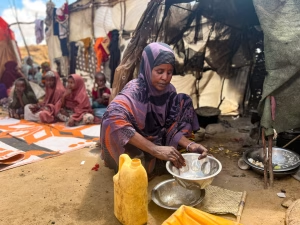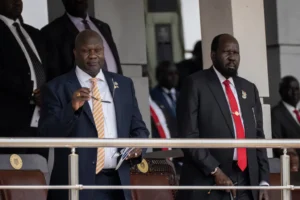When Chinese Ambassador Yu Dunhai announced that Chinese companies are working with Nigeria to establish Africa’s first local insulin production facility, it was more than a bilateral agreement. It symbolised a turning point in global health equity and Africa’s push towards medical independence.
For decades, Africa has relied on imported insulin, leaving millions vulnerable to unstable supply chains and rising costs. By hosting a facility that can locally produce insulin, Nigeria is not only tackling its diabetes burden but also positioning itself as a biotechnology hub for the continent.
“This project is part of the tangible benefits of China-Nigeria cooperation,” Yu said at a reception marking the 76th anniversary of the People’s Republic of China, adding that it follows other infrastructure projects such as the Abuja Water Supply scheme which now serves nearly three million residents.
Globally, insulin access has long reflected inequality. While the medication has existed for over a century, its availability in low- and middle-income countries remains a struggle. The World Health Organization estimates that nearly half of those who need insulin in Africa do not have consistent access.
With this initiative, Nigeria enters a new phase in reshaping Africa’s place in the global pharmaceutical map. Instead of remaining at the receiving end of imports, the continent begins to write a different Ètàn — one of production, innovation, and regional self-reliance.
Beyond Medicine: Diplomacy and Identity
The announcement also reinforces the symbolic ties between the two nations, both of which celebrate their national days on October 1. From infrastructure to language exchange — such as Nigeria’s adoption of Chinese in its senior secondary school curriculum — the partnership highlights a new model of South-South cooperation that challenges traditional global power structures.
Stories like that of Issah Fatimah Abiola (Bai Yang), the Nigerian female train driver honoured with China’s Friendship Envoy Award, and Ibrahim Ismail, the Kano schoolboy fluent in Mandarin, add a human face to this global shift. They represent how personal histories mirror wider narratives of connectivity and exchange.
Nigeria’s Commitment to Global Partnerships
Representing President Bola Tinubu, Senate Deputy President Barau Jibrin described China-Nigeria relations as a comprehensive strategic partnership delivering “tangible outcomes in infrastructure, energy, agriculture, education, defence, trade, and investment.”
For Nigeria, the insulin plant is more than a health project; it is a strategic leap into the global biotechnology arena, affirming the nation’s place in the wider story of medical innovation
The planned insulin facility is not just a Chinese investment or a Nigerian health project — it is a global development milestone, one that redefines Africa’s relationship with medicine, trade, and technology. It tells a story of how cooperation across borders can shape destinies, turning dependency into resilience and shared history into shared future.











